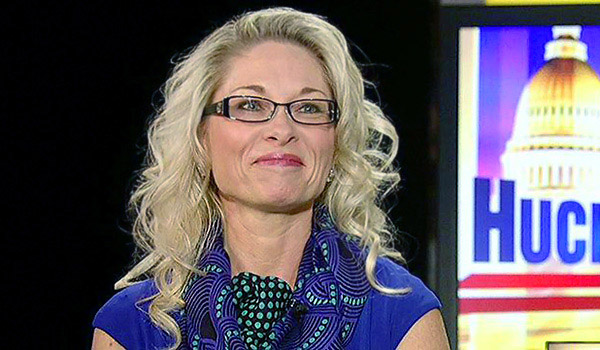-
Tips for becoming a good boxer - November 6, 2020
-
7 expert tips for making your hens night a memorable one - November 6, 2020
-
5 reasons to host your Christmas party on a cruise boat - November 6, 2020
-
What to do when you’re charged with a crime - November 6, 2020
-
Should you get one or multiple dogs? Here’s all you need to know - November 3, 2020
-
A Guide: How to Build Your Very Own Magic Mirror - February 14, 2019
-
Our Top Inspirational Baseball Stars - November 24, 2018
-
Five Tech Tools That Will Help You Turn Your Blog into a Business - November 24, 2018
-
How to Indulge on Vacation without Expanding Your Waist - November 9, 2018
-
5 Strategies for Businesses to Appeal to Today’s Increasingly Mobile-Crazed Customers - November 9, 2018
High court seems skeptical of mandatory public union fees
Hearing arguments Monday in Washington, pivotal justices voiced support for California teachers who contend their First Amendments rights are being violated. It seems to us that the court is really being asked to decide whether public employee unions have become too powerful and need to be reined in.
Advertisement
Legal experts had thought Scalia might be sympathetic to the union position due to prior votes and statements on the subject, but his questions signalled support for the 10 non-union California public school teachers who challenged the fees.
Even when the union’s lawyer, David Frederick, sought to explain routine issues on which the union negotiates such as teacher lunch breaks, he faced hostile questions.
Unions are concerned that a ruling throwing out the fees would give workers less incentive to join even if they generally agree with a union’s political stances because they would get all the benefits of collective bargaining without having to pay for it.
California is among roughly two dozen states with laws on the books under which unions are required to bargain for both members and non-members.
Carvin said requiring nonunion workers to pay agency fees “erroneously denies a fundamental right” – a line of thinking that not only garnered support from conservatives on the court, but also from Justice Anthony Kennedy, often the pivotal vote in closely divided cases.
All that said, though, the justices would do well to side with the non-union teachers, who have a First Amendment right not to be compelled to support political speech they disagree with. They say the vast majority of issues on which the unions bargain are of interest to all union and non-union employees alike.
But Chief Justice John Roberts countered, “If employees have shown overwhelmingly they want collective bargaining, it seems to me the free rider problem is insignificant”.
“When we’re talking about public unions”, he said, “everything they do is inherently a matter of public concern, because every time they get pension, health care, and salary benefits, that comes out of the public fisc…so every dollar you spend on health care or salary is a dollar you can’t spend on roads or children”.
He said the fees for collective bargaining typically apply to non-political issues such as mileage reimbursement, working hours and other mundane matters. Union lawyers have argued, and will argue to the Supreme Court, that since unions are required to represent all workers in a unit for purposes of collective bargaining, all workers should have to pony up for that service. With another presidential election looming this year, the Court’s decision could have a major impact on how much money is available to pro-union candidates. “If union members choose to not pay these fees, they will be ostracized by their fellow employees and will be made to feel uncomfortable”. The court said they were justified by the state’s interest in maintaining labor peace and eliminating “free riders” who gain benefits without paying their “fair share”.
The new court case calls for the reversal of Abood v. Detroit, and a number of Supreme Court justices have indicated the unions will lose this battle.
Twenty-five USA states already have what is known as “right-to-work” laws that prohibit workers from being forced to pay fees to a union. They added that a ruling against the unions could affect compelled fees paid to bar associations by lawyers and to public universities by students.
Justice Elena Kagan warned that the challengers “come here with a heavy burden” to overturn a almost 40-year-old case on which thousands of contracts and millions of employees rely. “This is a big deal”.
For decades, the growth of union workers in government has helped compensate for steep losses in manufacturing, construction and other private industries where unions once thrived.
Union membership in the United States has dropped since the late 1950s, leaving public sector unions as one of the last bastions of the American labor movement.
The court’s liberal members defended the current practice, noting that the justices usually think twice before overturning such a long-standing precedent.
He also ran with Scalia’s argument that it was the unions’ responsibility to argue the removal of agency fees would lead to their extinction. Currently, workers must “opt out” of the political fees by checking a box on a form.
Jennifer Thomas, president of CTA’s San Jose Unified School District union, estimates less than 1 percent of her members opt out of paying union dues.
Rebecca Friedrichs and nine other California teachers are not all wrong in their critique of the oversized influence and self-interest of teachers unions.
Advertisement
Share with Us – We’d love to hear eyewitness accounts, the history behind an article, and smart, constructive criticism.





























